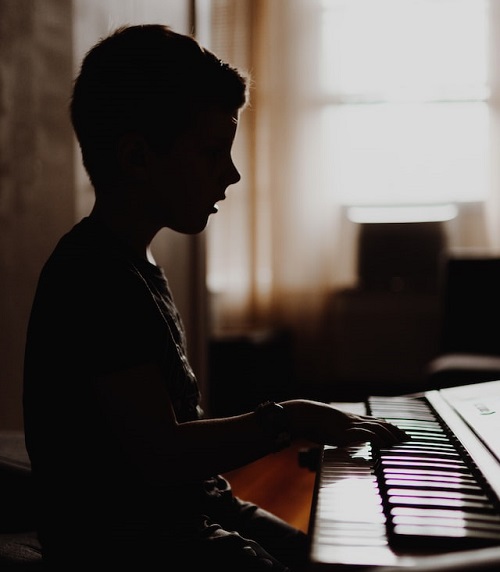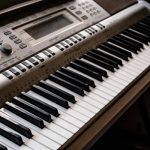There are many reasons why parents would want their children to have piano lessons, including the fact that it is a skill that can be used for a lifetime. Sadly, not all people can financially afford to pay for these lessons. These lessons can be quite expensive and out of reach for some people.
In spite of the many different designs of pianos, even the most compact ones require a substantial amount of room. This is due to the fact that pianos contain a large number of strings which need to be stretched out in order to produce sound. Additionally, the frame and body of a piano can be quite bulky, making it difficult to fit into smaller spaces. Contrary to acoustic pianos, keyboards are much more compact and convenient to transport. This is due to the fact that electric pianos do not contain any actual strings or hammers. This makes them a great option for anyone who needs a portable piano solution.
Piano teachers generally say yes when parents inquire whether their children may use a keyboard or a digital piano to study the instrument. The main reason for this is that both types of pianos have full-size keys, which is important for developing proper technique. In addition, both keyboards and digital pianos are capable of producing a wide range of sounds and can be plugged into headphones, so as not to disturb others in the household.
Although a keyboard or digital piano may be used by a large number of students, there are critical differences to keep in mind when transitioning from an electronic instrument to the traditional piano. For example, the traditional piano offers more resistance than an electronic keyboard, which can help build strength in the student's fingers over time. In addition, the traditional piano Cedar offers a wider range of dynamics and tones that can help the student better express themselves musically. As such, while an electronic keyboard may be a good starting point for some students, those who are serious about learning piano should eventually make the transition to a traditional piano.
Weighted Action Keyboards Are Best
When it comes to digital pianos and keyboards, one of the most important factors is the feel of the keys. Many keyboardists prefer weighted keys, as they more closely resemble the resistance of a traditional piano's keys. Weighted keys also offer a greater level of control and precision when playing. If you're serious about your piano playing, investing in a keyboard with weighted keys is highly recommended.
When playing a keyboard, the weighted keys provide a varied response to player touch. In other words, more force is required to produce the same volume when using a light touch. This is due to the fact that the weight of the keys affects how they respond to being touched. The heavier the key, the harder it is to press down, which in turn makes it louder. Pupils who don't get their feet wet on a weighted action keyboard may end up playing too quietly or too loudly when they go on to a real piano. In addition, they will be unable to develop a sense of dynamic range - the ability to add excitement or sadness to a song with different keystrokes at different times. This inability to create emotion in their music will limit their creativity and enjoyment of the piano.
Acoustic pianos require muscles that are honed on weighted-action keyboards. If a person learned how to play on a non-weighted keyboard, they would need to unlearn incorrect skills before being able to play an acoustic piano effectively.
Keyboard Size Is Also Important
A weighted keyboard is great, but it's also crucial to make sure the instrument is the right fit for your body and hands. Otherwise, you'll have a harder time playing and may even develop pain in your wrists and arms. Luckily, most manufacturers list the dimensions of their keyboards on their website or in the product description, so you can easily find one that will work for you.
Those who reside in smaller dwellings, such as apartments or townhouses, may not have the room needed for a full-sized keyboard. Some parents, recognizing that their children's little hands may benefit from learning on a compact keyboard, may choose to purchase one for their child. This way, they can take up less space in the small dwelling and still receive the benefits of playing the piano. While you might be tempted to purchase a small keyboard, it is important to avoid doing so as this may lead to children developing incorrect skills that they will later have to unlearn. Much as playing on a non-weighted keyboard does, this can teach your youngster to play incorrectly on two fronts. Additionally, many compact keyboards are weightless, which can cause even more problems down the road.
A complete 88-key keyboard is required to master the instrument. This way, your kid can explore the full spectrum of the keyboard and all its sounds. Even if you're on a tight budget, resist the urge to go with the most economically sensible alternative when choosing a piano for a youngster who plans to play for a long time. A cheaper piano may be tempting, but it likely won't hold up as well over the years or provide the same level of sound quality as a more expensive one.
This is especially important if your child plans to perform on a piano rather than a keyboard. This is because pianos are typically used in settings such as recitals, concerts, and other similar performances. By ensuring that your child is comfortable and familiar with playing the piano, you can help them to feel more confident and prepared when it comes time to perform.
Finding a Great Keyboard
Although you can get a keyboard for sale just about everywhere, don't forget that many music stores also offer keyboard rentals. To some extent, this may be the most cost-effective choice since it allows you to try out the instrument before committing to a purchase. You may also rent with the opportunity to buy in certain locations. This can be a great way to save money if you decide you want to keep the keyboard after all. By renting first, you can try out the keyboard to see if it's a good fit for you. If you decide you want to keep it, you can then purchase it at a discounted price.
To sum up, we can reasonably conclude that you can learn to play the piano on an electric keyboard. This is based on the assumption that electric keyboards are designed to mimic the feel and sound of a traditional piano. Therefore, with some practice, it stands to reason that you would be able to develop the necessary skills to play the piano on an electric keyboard.
Harlan Kilstein began playing piano during covid with no piano background at all. He taught himself how to play learning what to do and what not to do.
Today he's an advanced intermediate player and can help you grow in your skills because he learned all this on his own.








